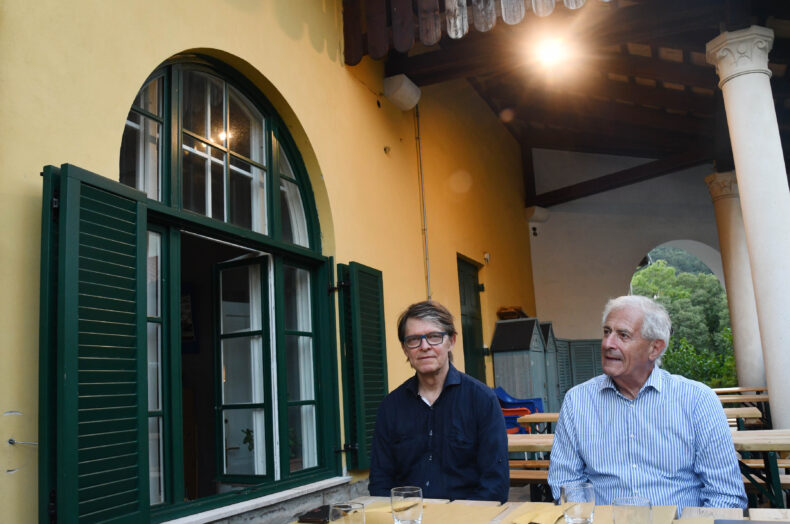Western democracies and their inner fragilities

What is the state of health of Western democracies? Where is the Israeli society going? What are the more significative cultural processes in act? And what is happening in the Jewish communities in Europe and the rest of the world? These are some of the questions at the center last week of the meetings of Redazione Aperta, the journalistic laboratory curated by the UCEI journalistic editorial staff.
Among the guests, the Italian-Israeli demographer and statistician Sergio Della Pergola, professor at the Hebrew University of Jerusalem, and the Slovenian philosopher Igor Pribac, a well-known voice of dissent against the anti-European right of Janez Janša, former Prime Minister deeply attached to Orban’s Hungary. Starting from the recent experiences of their own countries, both drew attention to the fragility of western democracies. As Pribac explained, although the recent elections led to the defeat of Janša, the system remains undermined in some of its institutions. Fragility, albeit with many differences, remarked professor Della Pergola, is also found in Israeli democracy, where institutions appear more structured but not protected from the illiberal impulses manifested by some elements of national politics.
“We take it for granted, but in the world liberal democracy is an exception and not a rule”. It is strengthened by prosperity, whereas economic crisis makes it weaker. “When the future turns dark -stressed Pribac – it is easy prey for populist and anti-system messages like Steven Bannon’s in the US, which are capable of reorienting consensus and undermining democratic institutions”.
According to Pribac, former Slovenian Premier Janša went through this path. “He ruthlessly used social media to amass his own populist following. The issue of immigration, especially during the Syrian crisis, was key in consolidating it. Then when he returned to the government, during the pandemic crisis, he exploited his position to attack the Constitutional Court on a daily basis”.
The legal system, as the philosopher and analyst pointed out, managed to resist. “But, through many decree laws, several doorposts of Slovenian democracy were moved by Janša, not only compromising the division of powers, but also the independence of the media and above all the basis of human rights”.
It is a possible situation, he added, in a context that creates few effective alternatives. “The opposition which is now in the government has compacted in an anti-Janša function, but otherwise it is very fragile”. It is somehow what happened in Israel, where polarizations have led to the formation of two camps, one in support of Netanyahu and one against, Della Pergola stressed.
“What is generally felt in the West is a great disillusionment in democratic mechanisms. Democracy and liberal capitalism have not created the well-being some sectors of society expected. Hence the idea of relying more and more on the individual, on the conductor – from Trump to Le Pen to Orban – emerged and gained traction “. Part of the voters, even in Israel, added the demographer “are looking for solutions that won’t give the hoped-for results, but which at the same time bring about the disruption of the system”.
For Pribac in particular, the problem is that of having in Western democracies on the one hand an “increasingly radical right, which is no longer conservative or a reaction, but whose initiatives increasingly go towards breaking every barrier”. And on the other hand, a progressive camp that is unable to make concrete proposals, to initiate new reforms, and to attract consensus.
Above, from left Slovenian philosopher Igor Pribac and Italian-Israeli demographer and statistician Sergio Della Pergola. Photo by Giovanni Montenero.
